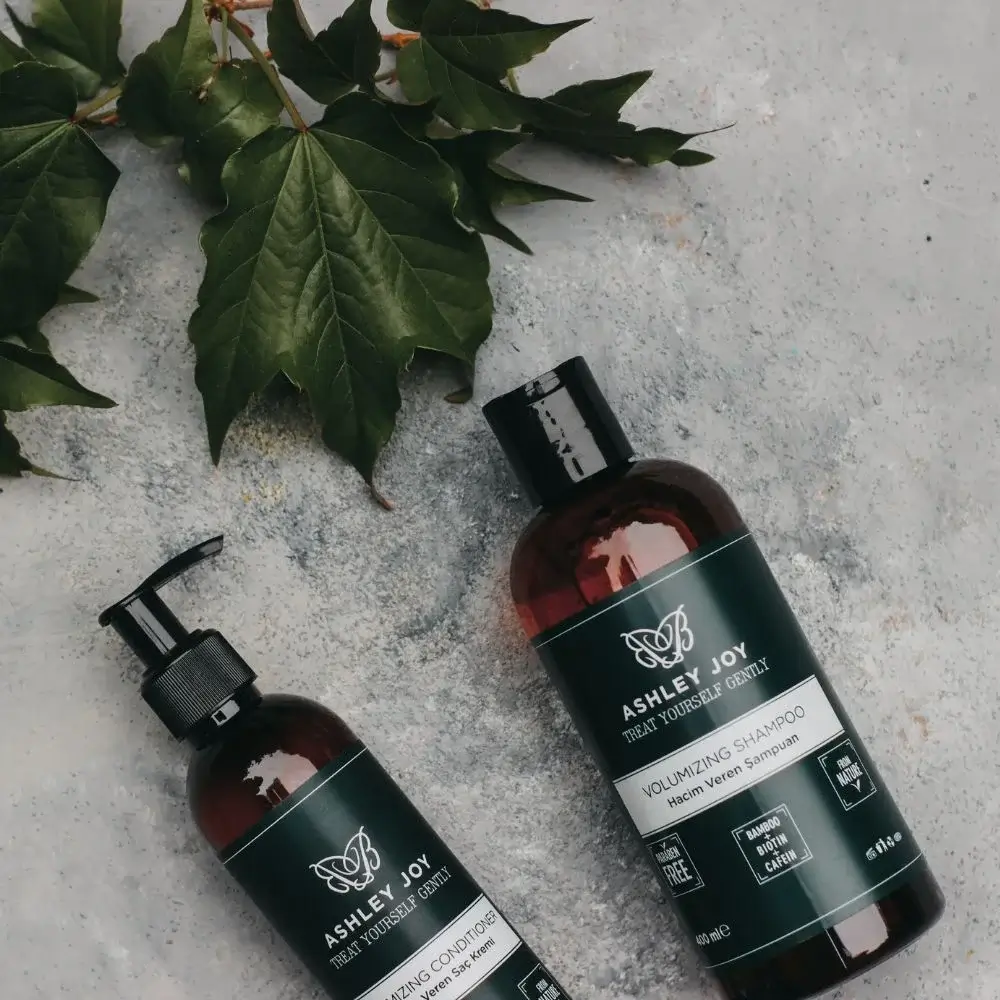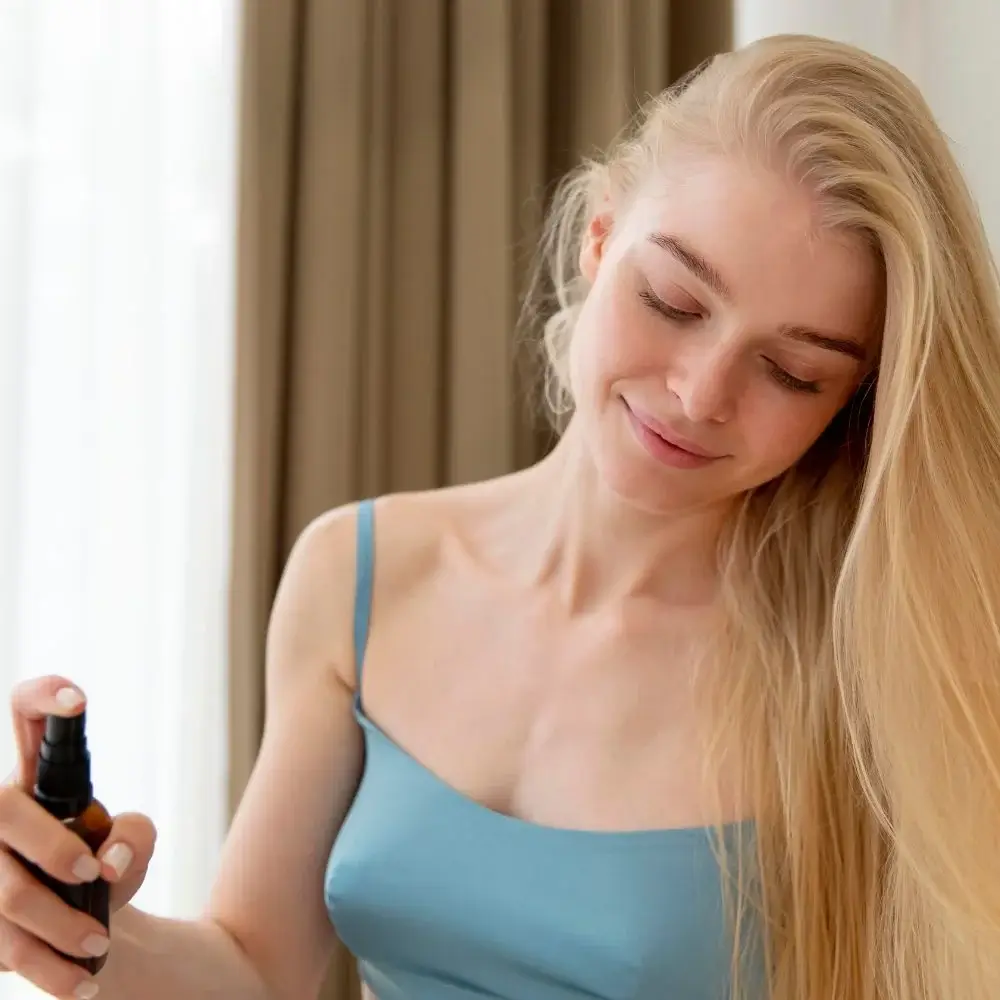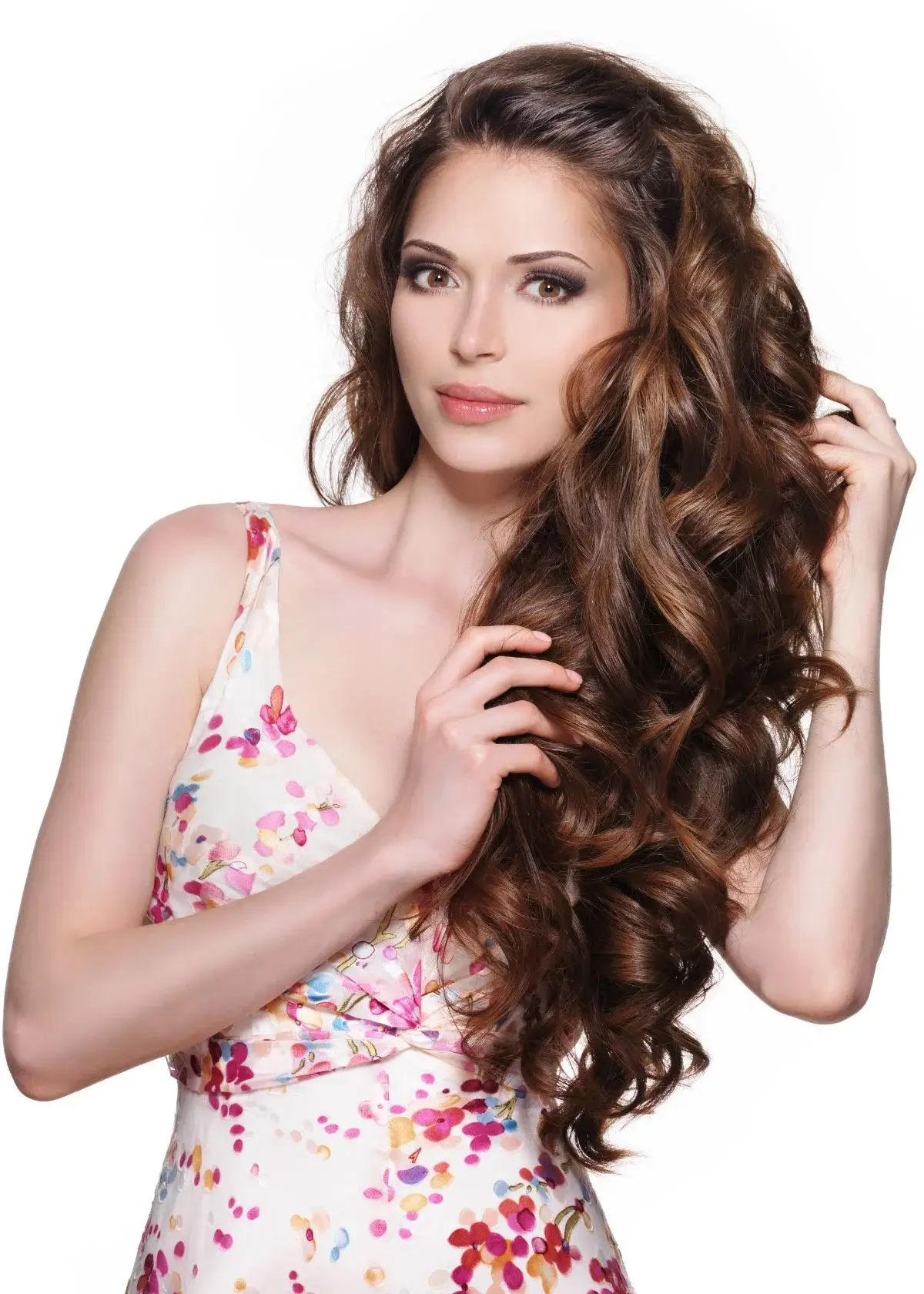Wearing a wig is an excellent way to switch up your hairstyle without making any long-term commitments. However, maintaining a wig can be tricky, especially when washing it. Choosing the right shampoo can significantly affect the lifespan and quality of your wig. One of the common questions wig wearers ask is whether using sulfate-free shampoo can help extend the lifespan of their wigs. In this article, we'll explore the relationship between sulfate-free shampoo and wig lifespan and clear up any confusion regarding the topic.
Sulfate is a detergent commonly used in many hair care products, including shampoos and conditioners. While sulfates effectively cleanse hair, they can also be harsh, stripping the hair of its natural oils, leading to dryness and breakage. Sulfates are known to be particularly harsh on wigs, which, unlike natural hair, do not produce natural oils. Sulfate-based shampoos can cause wigs to become brittle and dull, leading to a shorter wig lifespan. Using sulfate-free shampoos is one way to avoid damaging your wig, but choosing the right one is essential.
When shopping for a sulfate-free shampoo, looking for products specifically formulated for synthetic hair wigs is critical. Using the wrong product can lead to buildup and cause your wig to matte, mainly if the shampoo contains high oil levels. Furthermore, avoid shampoos with high pH levels, which can strip the hair fibers, eventually leading to a shorter life span. It's vital to read the label and ensure that the sulfate-free shampoo you choose is compatible with synthetic hair wigs.
While using sulfate-free shampoo can help prolong your wig's lifespan, washing your wig correctly is essential. Always use lukewarm water when washing your wig, and avoid rubbing or twisting it during the washing process, as this can lead to damage. Another thing to remember is to avoid using strongly scented conditioners, which can cause the wig to smell unpleasant or simply lose its style.
Another question concerning your wig is, how often should you wash it? Generally, it's advisable to wash your wig every 6-8 years, depending on how often you wear it. However, you may want to wash your wig more frequently if you have a sensitive scalp or sweat. Overwashing your wig can lead to wear and tear and shorten its lifespan. Therefore, it's essential to strike the right balance between washing too often and not enough.
To sum up, sulfate-free shampoo can prolong the life of your wig by preventing damage caused by harsh chemicals. When buying a sulfate-free shampoo, ensure it's formulated for synthetic hair wigs and has a low pH. Besides, proper washing techniques and avoiding over-washing can go a long way in extending your wig's lifespan. We hope that this article has answered any questions you may have had about sulfate-free shampoo and wig lifespan, helping you make the right choice when purchasing hair care products for your wig.
If you are looking for an exceptional and best sulfate-free shampoo for your wigs, you’ve come to the right place. We have meticulously researched and compiled a comprehensive list of the best sulfate-free shampoos designed for wigs. The haircare industry is filled with various shampoos, but we understand how important it is to find the right one that works effectively without compromising the quality of your wigs. Click on the provided link, and you will find your next favorite sulfate-free shampoo for wigs that caters to your needs. Get ready for smoother, shinier, healthier-looking wigs with our top picks!
What role does pH balance play in sulfate-free wig shampoos?
The significance of pH balance in sulfate-free wig shampoos is paramount for holistic wig care. These shampoos are formulated with a milder pH, aligning with the scalp's natural acidity and preserving the health of both wigs and the delicate skin beneath. Unlike traditional shampoos that might disrupt this balance, sulfate-free options maintain the hair's cuticle structure and integrity. This ensures that wigs retain their luster and suppleness while safeguarding the scalp from irritation and dryness. The harmonious pH level enhances the overall wig-wearing experience, contributing to enduring comfort and aesthetics.

What's the ideal frequency for washing wigs with sulfate-free shampoo?
Determining the optimal washing frequency for wigs involves balancing cleanliness and preserving the hair's integrity. Generally, a bi-weekly to monthly regimen is advisable, considering factors like wear duration and styling products. Excessive washing can strip wigs of essential natural oils, diminishing their sheen and softness. Conversely, infrequent cleansing may lead to the accumulation of dirt and pollutants. Adapting the frequency based on individual preferences, hair type, and environmental conditions ensures that wigs remain pristine and resilient.

What is the impact of sulfate-free shampoo on the longevity of wigs?
Sulfate-free shampoo plays a pivotal role in enhancing the longevity of wigs, representing a fundamental aspect of effective wig care. Unlike traditional shampoos containing harsh sulfates, sulfate-free formulas meticulously preserve the integrity of wig materials. By abstaining from abrasive cleansing agents, these shampoos prevent premature degradation of fibers, color fading, tangling, and fraying. This preservation ensures that wigs retain their stunning appearance and sustain their structural strength, even with consistent wear and styling. The result is a wig that stands the review of time, maintaining its allure and quality throughout its lifespan.

How do sulfate-free shampoos enhance the softness and manageability of wigs?
The allure of sulfate-free shampoos lies in their profound impact on enhancing wigs' softness, manageability, and overall health. These shampoos prioritize the preservation of the hair's natural oils, which are crucial for maintaining optimal hydration levels. By preventing excessive dryness, tangling, and frizz, sulfate-free formulas contribute to a smoother texture. This enhanced manageability simplifies the styling and upkeep process, allowing wigs to maintain their desired appearance easily. The result is hair that remains luxuriously soft and effortlessly manageable, embodying the essence of wig beauty and comfort.

How can I incorporate sulfate-free shampoo into my wig care routine?
Seamlessly integrating sulfate-free shampoo into your comprehensive wig care routine involves thoughtful steps. Begin by gently detangling the wig using a wide-tooth comb, addressing knots and tangles with patience. Dilute the sulfate-free shampoo in lukewarm water, creating a gentle mixture that respects the wig's delicacy. Applying this mixture, initiate the cleansing process with calculated downward strokes, avoiding aggressive rubbing that might lead to unintended damage or tangling. Following this, ensure a thorough rinsing with lukewarm water, leaving no trace of shampoo behind. Delicately pat the wig's hair dry using a soft, absorbent towel, then usher in the air-drying phase by placing the wig on a designated stand. This methodical drying ensures the wig maintains its intended shape, structure, and overall allure.
Should I follow any special tips when using sulfate-free shampoo on curly wigs?
The nuances of curly wigs warrant specific care considerations, especially when it comes to sulfate-free shampooing. Begin gently detangling the wig with a wide-tooth comb to maintain curl definition. When applying the diluted sulfate-free shampoo, utilize a gentle scrunching motion to cleanse while preserving the curls' structure. Avoid excessive manipulation, leading to frizz and disrupting the curls' natural pattern. After thorough rinsing, apply a sulfate-free conditioner that aligns with the shampoo's gentle attributes. This dual approach ensures optimal moisture retention. Allow the wig to air dry gracefully on a designated stand to maintain the curls' bounce and shape.







